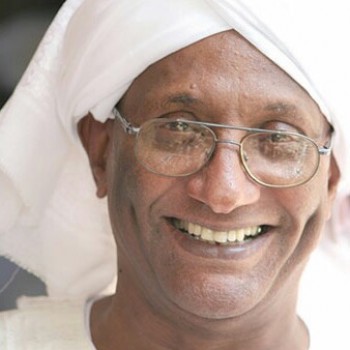Between the American Administration and Congress: We will Learn War in the Dark (2-2)

By: Abdullah Ali Ibrahim
“It was not difficult for the Sudanese to restore democracy when a dictator confiscated it, but they had never before tried to restore the state after its collapse. As the Roman commander said, ‘We will learn war in the dark’ when they told him that the Persian arrows covered the sky, darkening the earth.”
It appeared from the testimony of America’s special envoy to Sudan, Tom Perriello, before the Senate Foreign Affairs Committee last Wednesday that the tension between the Council and the US administration over US policy towards Sudan had widened considerably. The committee’s Republican member from Idaho, Jim Rich, said it explicitly: Their patience has run out with an administration that introduces and repeats futile policies. He called on them to develop a realistic alternative policy covering the issue from all its aspects, ending the war and refraining from Sudan’s obituary statements for them.
It seemed to me that perhaps what would prevent America from achieving the innovative plan called for by Senator Rich was that it was still stalling on the version of democratic transformation in Sudan, as it stopped on April 15, 2023, the day of the war. The war, according to Perriello, who came to testify before the Senate Foreign Affairs Committee, is between two generals, Abdul Fattah Al-Burhan and Mohamed Hamdan Dagalo, against the Sudanese people and their aspirations for democracy. Democracy is America’s demand. It does not want to stop the war just for the sake of stopping the war, rather, it wants the Sudanese to continue their democratic path. Perriello’s concept of the war is almost identical to the concept of the Coordination of Civil Democratic Forces (Taqaddum), even in warning that it is a war from which the crew of the Islamic Ingaz Regime and the extremists (the remnants) wanted a back door to return to power. He almost called it, because he said it was a war of two generals against the people, “absurd” as it is termed by Taqaddum. Perriello even agreed with “Taqaddum” in accusing both parties of committing war crimes to the same extent. Perriello does not mention one crime for one party unless he mentions another for the other party, regardless of how bad it is in both cases, in order to seek what is known as “moral equivalence.” The “genocide” crime, whose abnormality Churchill said had no name when it occurred in Germany against the Jews, and which Perriello attributed to “Rapid Support Forces (RSF))” in Darfur, falls short in comparison with the army’s bombing of headquarters that he said were for storing military equipment, as horrific as the latter is when it misses its target.
Perriello has a good opinion of Sudanese civil society and its strong attachment to democracy. But his concept of war coincided with the opinion of Taqaddum, a large and important group. However, some parties among them and others no less numerous and influential than “Taqaddum” have developed opinions that see justice in war on the side of the army, neither out of fondness for it nor out of forgiveness for its gross misguidance in governance, but rather because the foundation of the modern state, whether democratic or not, cannot exist without it. When the army’s monopoly on weapons is broken, the gates of hell will open on the country. Contrary to the American opinion, if what Perriello stated is this opinion, many Sudanese believe that democracy is the last thing on their minds. The Sudanese state itself, they say, are at stake. They believe that the army’s violations in this war are what is said to be “unfortunate” because they are on the right side of it. As for the Rapid Support’s violations in the war, they are considered “terrorist,” whether major or minor, because they are on the wrong side.
If there is a lesson from Perriello’s testimony before the Senate Foreign Affairs Committee, it is that America should come up with a concept of war other than what it has now, which burdened Rich with his depression and he expected a better one from the administration. Perhaps this credit came to him when America considered the pity of many Sudanese not for democracy in their homeland, but for the disappearance of the state as they had always known it. It was not difficult for the Sudanese to restore democracy once it was confiscated by a dictator, but they had never before tried to restore the state after its collapse. They will not delay in engaging in this recovery if it is necessary, and they will learn its mechanisms.
A Roman commander was told that Persian arrows covered the sky, turning the earth dark. “We will learn war in the dark,” he said.



